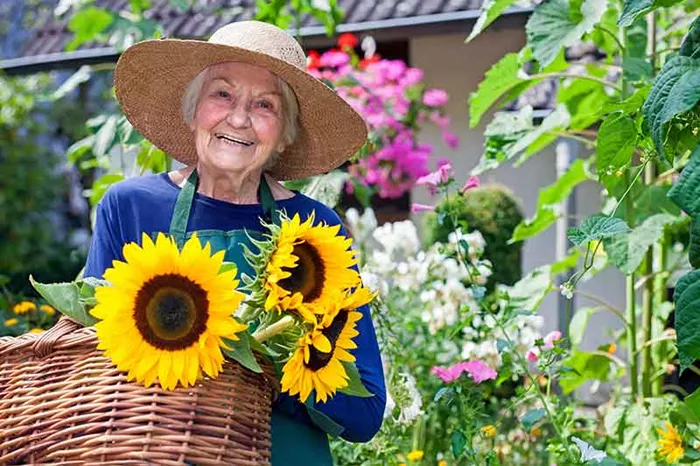Maureen McElvanney, an 87-year-old great-grandmother, has rediscovered her love for gardening, thanks to a special course at The Royal Botanic Garden Edinburgh. Diagnosed with Alzheimer’s disease seven years ago, Maureen’s memory loss, confusion, and changes in personality have made everyday life challenging. However, a gardening project aimed at dementia patients is helping her reconnect with the past and find joy in the present.
Maureen’s lifelong passion for gardening began in Rouken Glen Park in East Renfrewshire, where her father worked as the superintendent. Now, as part of the bi-weekly Garden Thyme project, she grows vegetables and flowers with others living with dementia. The project accepts referrals from GPs and dementia advisors, providing a unique, nature-based way to engage those affected by the disease.
Her daughter, Clare Boyd, shared how surprised she was to learn that her mother could be referred to a gardening program. She soon saw the immense benefits it brought to Maureen’s life. “What’s been great about this group is that my mum can be actively involved in gardening again, not just wandering around looking at flowers,” Clare explained. “It’s something she’s passionate about, and it’s given her energy.”
Clare also mentioned that the gardening sessions offer a way to spark Maureen’s memories. “We can talk about the photos after the sessions, which help trigger her memory of other events,” she said.
Before her diagnosis, Maureen had worked at Mortonhall Garden Centre in Edinburgh, and she had an extensive knowledge of plants and their Latin names. While she can no longer remember specific names, her love for gardening has returned. Clare notes that Maureen now enjoys planting seeds, tending to the plants, and watching them grow. “She’s always much brighter and happier after she’s been,” Clare added.
Maureen herself said, “I liked planting seeds and seeing them grow into bigger plants,” showing the joy and fulfillment the activity brings her. Even though she now has help with her own garden at home, she continues to enjoy pottering around in it.
Gillian Council, Alzheimer Scotland’s executive lead for brain health and innovation, highlighted the importance of nature-based activities for people with dementia. “We’ve seen firsthand how people with dementia and their families benefit from spending time in green spaces. For someone living with dementia, social isolation can accelerate disease progression, making these activities an important way to maintain social contact.”
Laura Gallagher, community engagement coordinator at the Royal Botanic Garden Edinburgh, emphasized that the project’s goal is to create a supportive environment. “The activities in the Botanic Cottage are sociable, fun, and friendly. Participants enjoy the benefits of being out in nature while doing light gardening tasks like planting seeds or simply strolling through our beautiful garden.”
For Maureen, these gardening sessions provide not only a sense of relaxation but also a link to the past, offering comfort and happy memories amid the challenges of dementia. Clare reflected, “My mum is often anxious because she doesn’t know what’s going on. But at the Botanic course, she’s relaxed, and the gardening brings back so many happy memories for her.”


